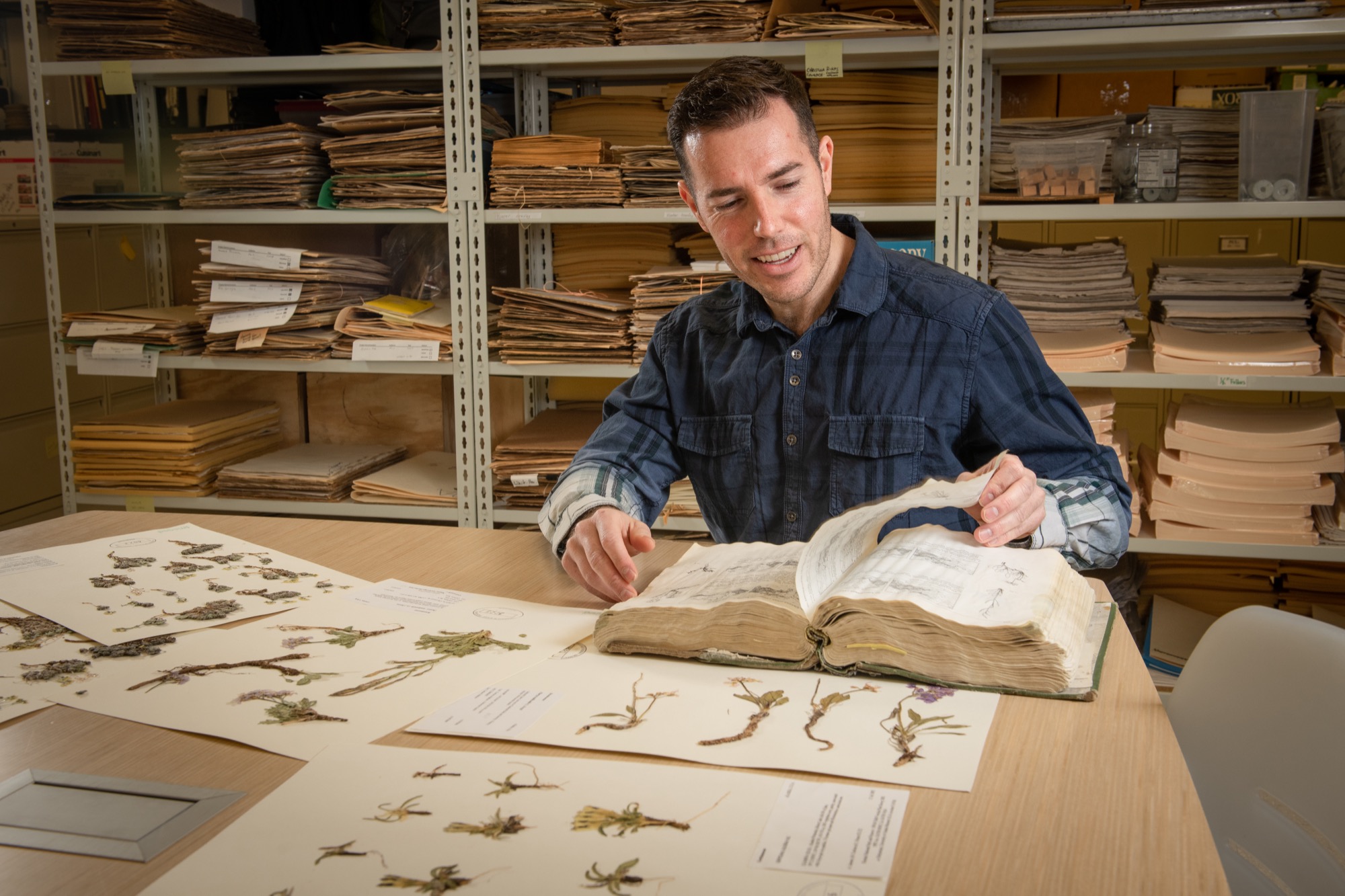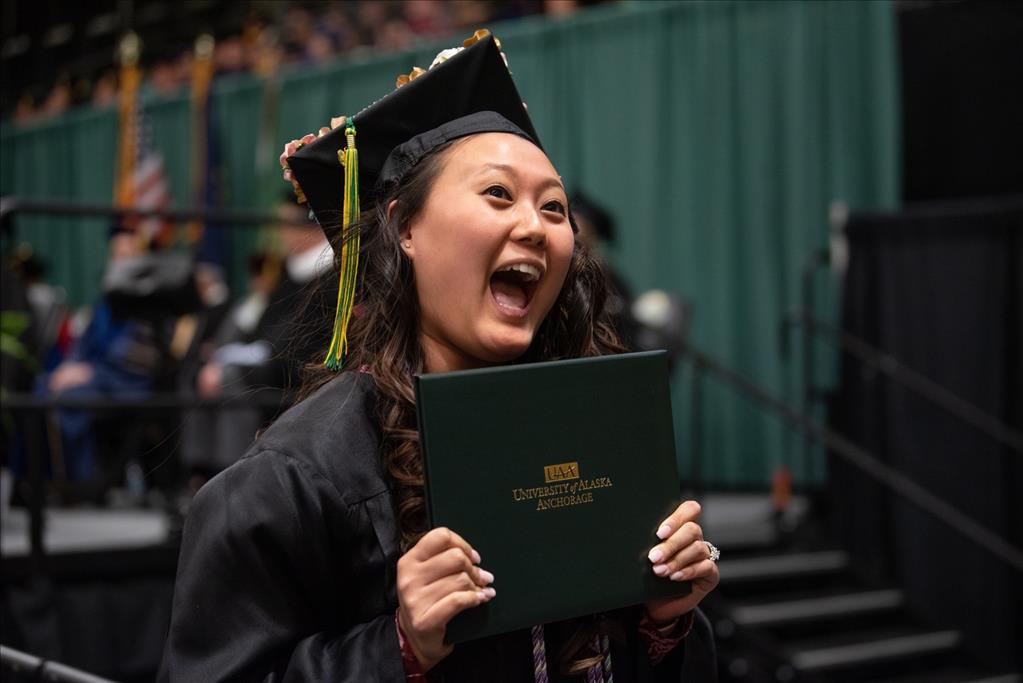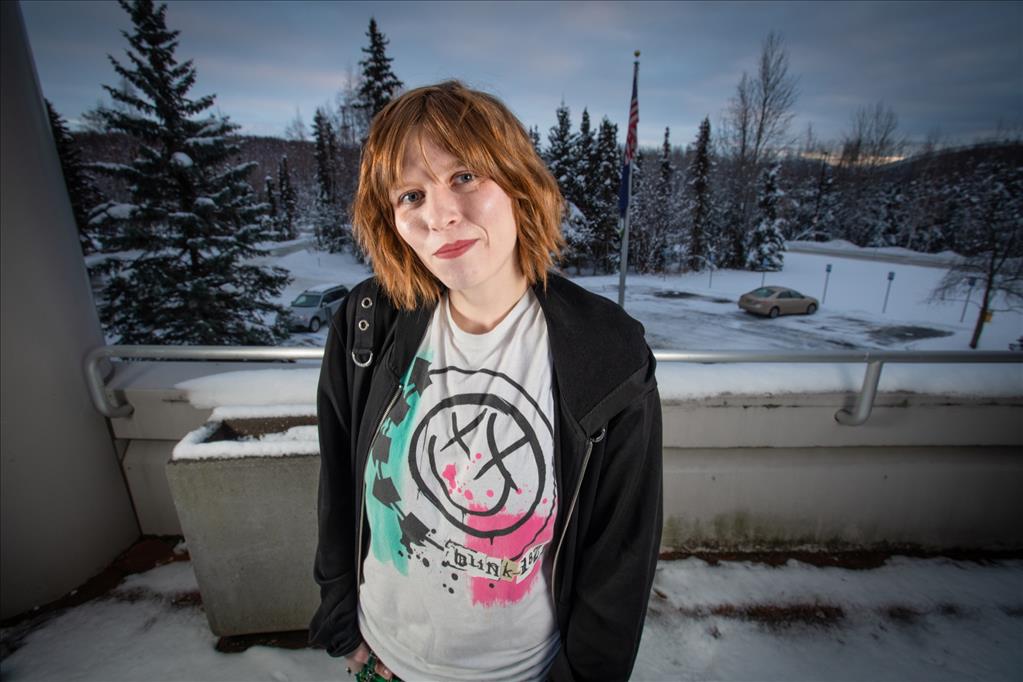‘This is our patrimony’: Dance professor archives two decades of Afro-Cuban history
by Matt Jardin |
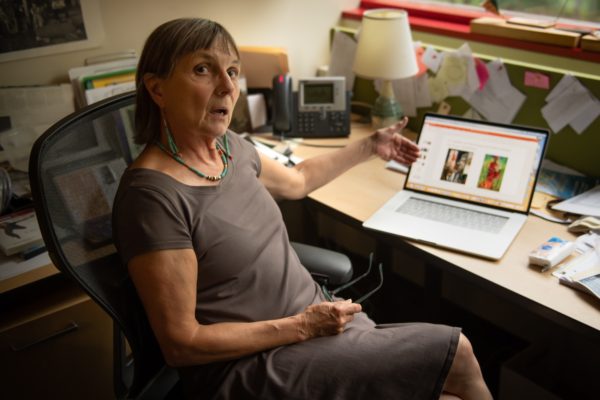
For the past 27 years, UAA theater and dance professor Jill Flanders Crosby has been traveling between Perico and Agramonte, Cuba, and the West African communities of Dzodze, Ghana, and Adjodogou, Togo, to work on a project preserving each community's history and traditions via extensive video and audio recordings. (Photo by James Evans / University of Alaska Anchorage)
For the past 27 years, UAA theater and dance professor Dr. Jill Flanders Crosby has been working on a project spanning generations, mediums and even the Atlantic Ocean. Since 1997, Flanders Crosby has traveled between Perico and Agramonte, Cuba, and the West African communities of Dzodze, Ghana, and Adjodogou, Togo, to preserve each community's history and traditions via video and audio recordings.
Don't call this work a passion project. According to Flanders Crosby, it's much more than that.
"It was an ethical responsibility project. I had no choice. One of the elders, Hilda, specifically told me, 'Don't be like others who came here and gathered all this information and did nothing with it.' So it was an ethical responsibility to those who trusted me with their history," says Flanders Crosby.
This year, the project entered its home stretch. In February, Flanders Crosby presented a lecture on her work titled Dancing at the Edge of the Sacred at the Smithsonian Folklife and Cultural Heritage Center in Washington, D.C. Her work has been collected as a multidisciplinary art installation titled Secrets Under the Skin, and presented in Havana, Ghana and San Francisco. There's even a book on the way, also titled Secrets Under the Skin.
Perhaps most importantly, all of Flanders Crosby's fieldwork - more than two decades' worth of audio, video, photos, and writing - is being digitized and archived at the University of Miami's Cuban Heritage Collection, and the Fundación Fernando Ortiz (Fernando Ortiz Foundation) in Havana.
Keep in mind that some of the project's earlier records, such as anything recorded on a VHS or cassette tape - of which there are many - might require a little more work to preserve. But it's worth it for Flanders Crosby to be able to keep her promise.
"One of the things the administrators at the Fundación Fernando Ortiz told me is that I helped document and give back to them their patrimony, their history, their legacy," she says. "It's satisfying knowing that I've followed through with the elders' requests that I interviewed."
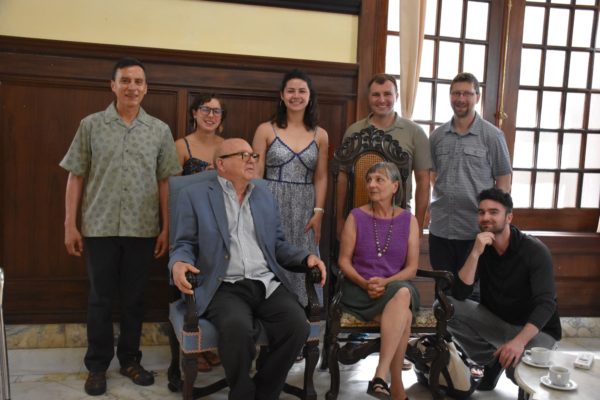
Flanders Crosby's fieldwork is being digitized and archived at the University of Miami's Cuban Heritage Collection, and the Fernando Ortiz Foundation in Havana. Standing from left: Francisco Miranda, UAA Spanish professor; student Kristal Pérez Avilés; student Anna Padrick; John Mouracade, UAA Dean Honors College; and Dan Anteau, UAA theater and dance professor. Seated from left: Miguel Barnet, Fundación Fernando Ortiz (Fernando Ortiz Foundation) and Unión de Escritores y Artistas (Union of Artists and Writers) president; Jill Flanders Crosby, UAA theater and dance professor; and student Ben Hagensiecker. (Photo by Miguel Parera / Courtesy of Jill Flanders-Crosby)
Flanders Crosby's project has come a long way from its origins as doctoral research studying the West African origins of jazz dance. While working on her dissertation in New York City following her year in Ghana, she noticed that some of the dances she documented while in West Africa were similar to forms she was learning about while taking an Afro-Cuban dance class. After doing some digging, Flanders Crosby learned that the similarities weren't just coincidental.
"They are similar because it is argued that the Ewe and Fon people that were relocated to Cuba through the Transatlantic Slave Trade were those that reimagined their religious expressions slightly differently, and one became known as Arará. These dances, embedded inside the religious expression, also became Ararà," she explains.
After earning her doctorate, Flanders Crosby continued traveling between West Africa and Cuba to dive further into the rabbit hole of similarities. She was even awarded a Fulbright scholarship to keep conducting her research. During the course of her visits, she began to build a rapport with the people she was interviewing, and that's when the project evolved.
"As elders began to trust me, they opened up their homes and gave me stories and histories that no other scholar has," describes Flanders Crosby. "It's a complicated history, and I would keep going back and do more interviews. I wound up taking conversations between Cuba and Africa back and forth. The Cubans are so proud of their heritage. Africa meant everything to them because they were ripped from their homeland. So they would ask questions, and I would go ask those questions and film the responses and take them back to Cuba. And that became very important for their understanding of their heritage."
In addition to the positive impact this project has had on the Cuban and West African communities that took part, Flanders Crosby mentions her work having a benefit on the wider academic community in the form of a wealth of primary sources that haven't existed until now.
She is also quick to remind that this grand project started out from wanting to study dance.
"I have a great degree of satisfaction knowing that this came from the study of dance, because dance's scholarship is so oftentimes dismissed as inconsequential. And it's not, because there's so much that can be done through the lens and the medium of dance," says Flanders Crosby. "I think dance is one of the truly interdisciplinary fields of study that there is because you can look at dance historically, ethnographically, through gender, as an artform, and as an oral history form. So again, it's significant what you can contribute through the discipline of dance."
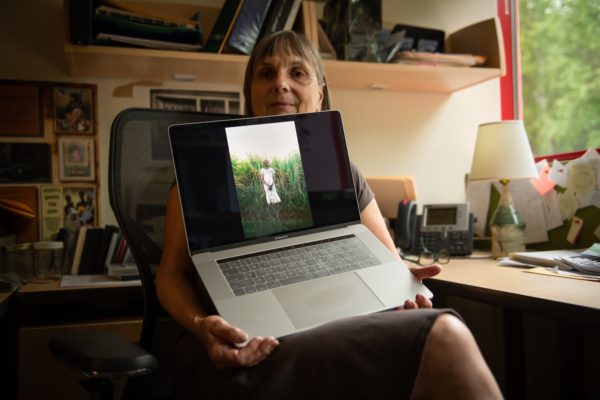
Flanders Crosby sharing a photo of Hilda Zuleuta, one of the elders of Perico, Cuba. (Photo by James Evans / University of Alaska Anchorage)
Written by Matt Jardin, UAA Office of University Advancement
 "‘This is our patrimony’: Dance professor archives two decades of Afro-Cuban history" is licensed under a Creative Commons Attribution-NonCommercial 4.0 International License.
"‘This is our patrimony’: Dance professor archives two decades of Afro-Cuban history" is licensed under a Creative Commons Attribution-NonCommercial 4.0 International License.










